Reasons Why Your Clickthrough Rates Are Low in Search Console
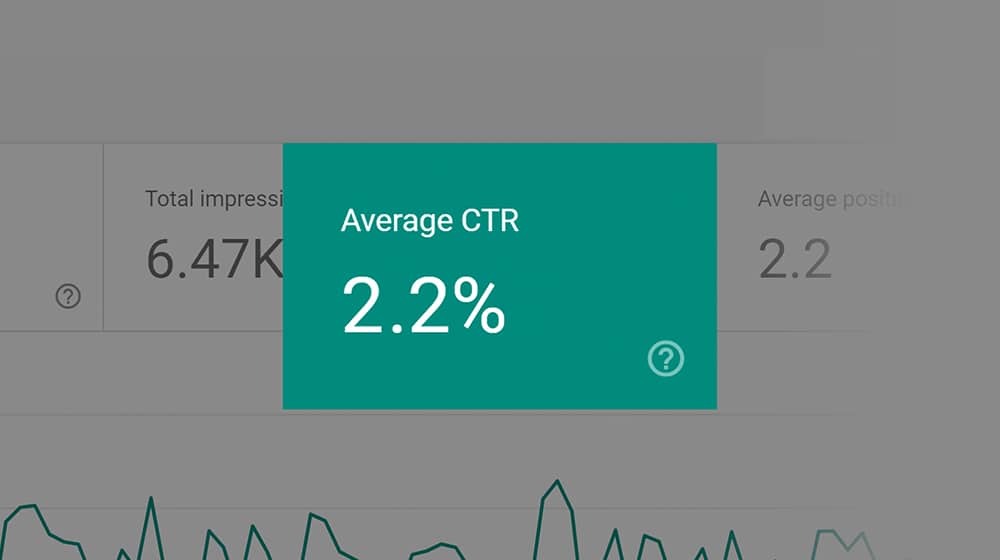
Google's Search Console is one of the most important tools a webmaster can have at their disposal. Inside the many tools and reports it gives you, you'll find the click-through rate chart, which is a fantastic analysis of how well your site is attracting traffic from the organic search results.
To view this report, log into the Google Search Console. On the left sidebar, expand the Search Traffic heading and click on Search Analytics. This changes the main pane to a chart of average CTR values. Make sure the Clicks and CTR options are checked, then dig into the data. You can see what queries you're showing up for and what your CTR is for those queries. It's all excellent data. Though, you're probably here because you've already found this chart.
So, what happens when you're looking at that data and all the numbers seem… low? Naturally, you want to improve them. A better click-through rate means better traffic, more engaged viewers, and a higher chance at conversions, right? You should investigate into what might have gone wrong. That's where I come in.
Here's my list of the most common reasons why your click-through rates are low.
Before I can help, though, you should first read this post that we wrote on what is considered a "good" or "average" CTR. While the numbers might look low, it pays to understand what a "good" CTR is. It's no use worrying about a CTR that looks low but is, to your surprise, above-average for your industry and position. Once you've read that post, come on back.
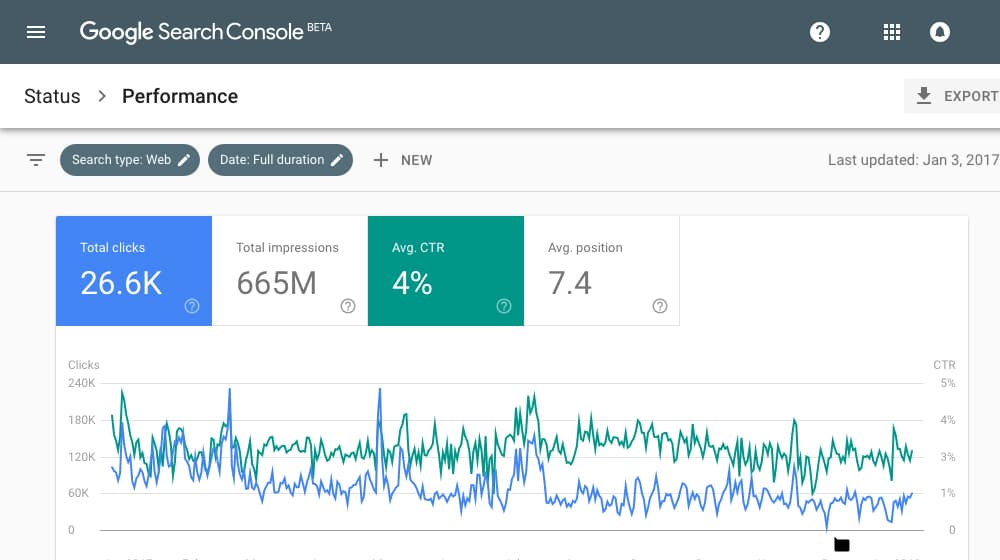
Did you read it? Great! Let's get started digging into reasons why your CTR might be lower than average, and what you can do about them.
Your Titles Aren't Appealing Enough
When a user searches for something on Google, they have a purpose behind it. It might be a fact they want to find. It might be a topic they want to read about. It might be a news article they're looking for, a product they want to buy, or a restaurant they want to find. Most search queries has purpose and intent behind it. Are each of your articles matching up well to the titles of your pages?
Google does the best it can to match the search results to the purpose of the query. In some cases, that's easy. A query like "burgers near me" allows Google to find every local burger place and display them, quick and relevant. Other queries are harder. If someone searches for "Buena Vista", are they looking for the town in Colorado, the café in San Francisco, the university, the defunct movie studio, or something else? Google does its best, but it has to use some context like the user's geographic location and other recent searches to help.
Your content needs to be focused around a narrow topic and keyword so that you appear for searches related to your content. But that's not enough, now is it? There are probably hundreds if not thousands of pieces of content written about that topic. If you want to stand out, you need to capture the attention of the people reading the search results. What are those people reading? The snippet, which is made up of three things: your title, your description, and your URL. The title is the first thing the user sees and is the largest font in the search results, and therefore is the most important part to optimize.
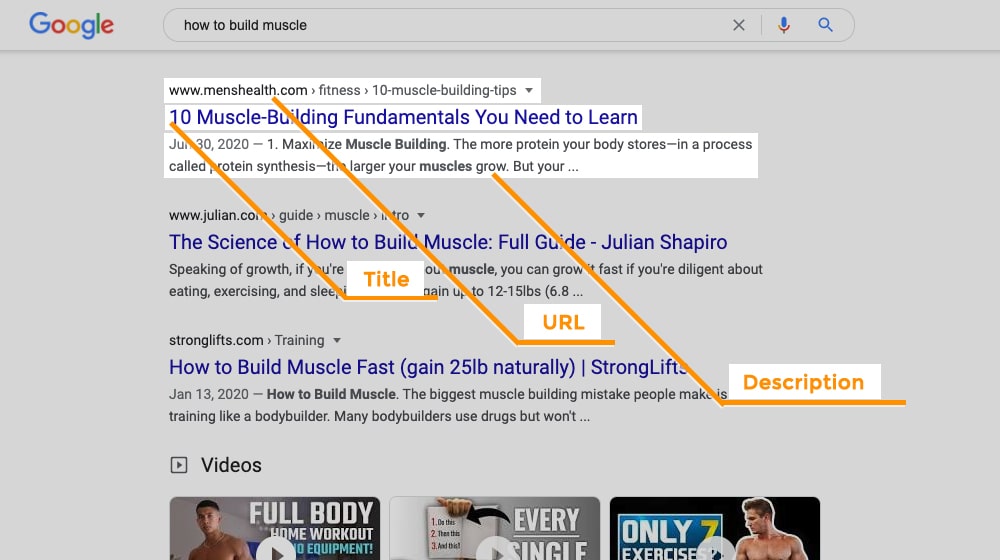
Plenty of people have written lengthy guides just on optimizing titles, and it seems like everyone has a different plan for what works best. I favor asking questions, providing information, and taking the opposite of the common title. Other advice I've seen includes:
- Ask a question in your title.
- Keep your title under 20-30 characters whenever possible.
- Inject an emotional direction into your title.
- Avoid "power words."
And, of course, you can always read articles by other companies about how they make their titles, too.
Your Meta Description Isn't Appealing
The meta description is something of a contentious issue. On the one hand, some SEO people swear by it. The meta description is important, there's no doubt about that. After all, it's one of the three components of a search result. Optimizing it has to be important.
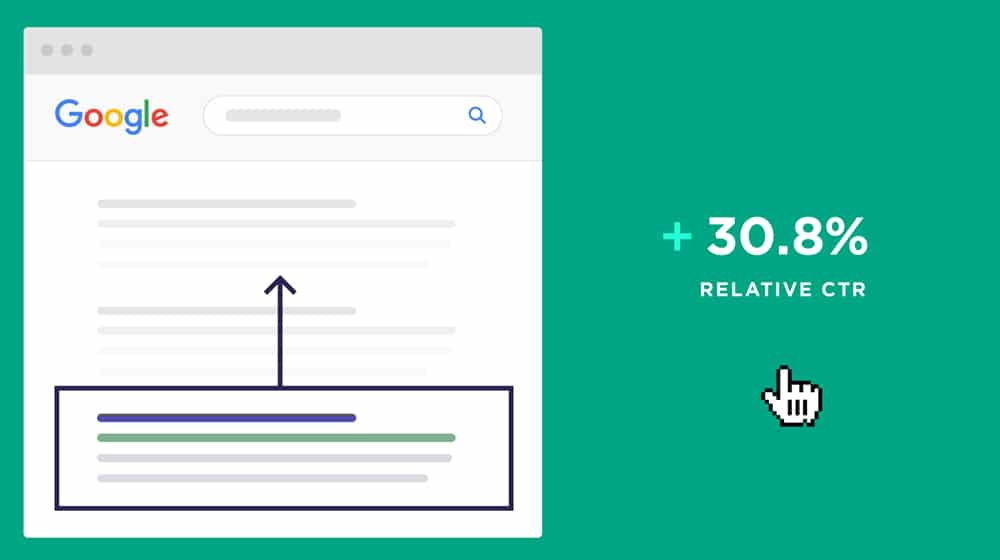
Except, ah, not so fast. See, I did a little study a while back and found something interesting. Of a few test queries, I found that in 83% of search snippets, Google ignored the meta description and chose their own.
I won't refute the fact that the meta description is important, and that specifying it is great… when it works. The trouble is, Google will rarely use your descriptions as you wrote them. To be frank, I would be unsurprised to see the description field go the way of the meta keywords field in the next half-decade or so and become obsolete. Until then, though, work on optimizing your meta descriptions, just in case they decide to use them.
Google has character limits for both the title and description they display in snippets. It's tricky because Google will often choose a longer snippet for the description, and truncate it, despite your best efforts. The title, though, that's something you can always control.
In either case, it's worthwhile to make sure your data isn't being truncated. Even though truncated metadata is commonplace, it still looks better when you don't have that pesky ellipsis at the end of them. If your search result is the only one without it, it might even help you stand out more.
For reference, as of mid-2020, Google's length is somewhat dynamic. The meta description is around 120-160 characters before it is truncated. The title field is usually up to 60 characters, though as I mentioned in my title advice above, it's generally better to keep it on the shorter side.
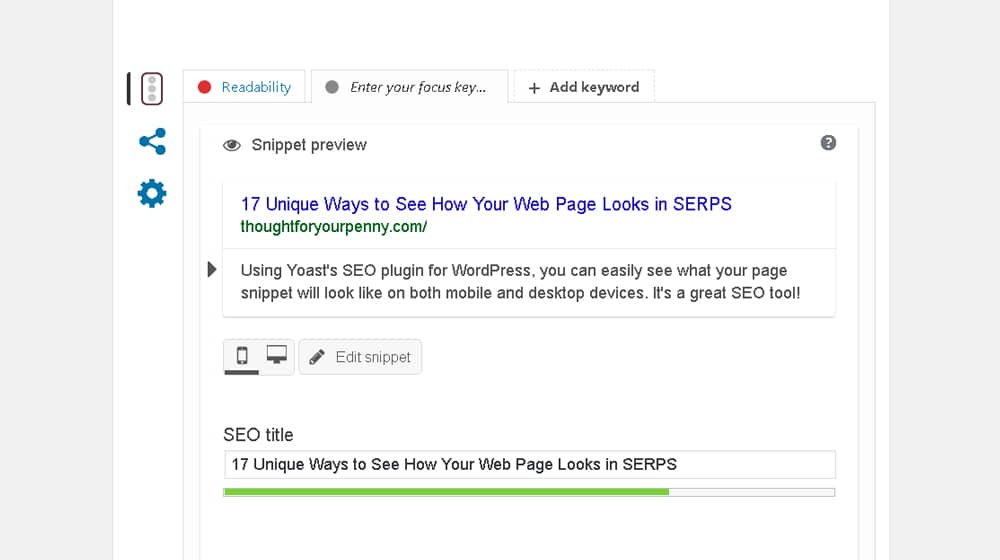
Character length is variable; for example, which is longer, five W's (WWWWW), or five I's (IIIII)? As you can see, both are five characters, but one of these takes up more real estate on your screen, so there is no longer a concrete character length that you can stick to. Many content management systems and SEO plugins have updated so that you can view how your title looks in the search results to ensure that it fits properly.
You're Not Using a Descriptive URL
By this point, I'm pretty sure the WordPress default method of handling URLs is human-readable, but now and then you still find a site that uses dynamic or numeric URLs. Remember, the URL is a third of what people see in the search results.
What I often do is use the URL to help describe what a page is about, if the title and description don't help. I'm sure other people do as well. Google even formats URLs with spaces and identifies subfolder and categories to make them easier to read.
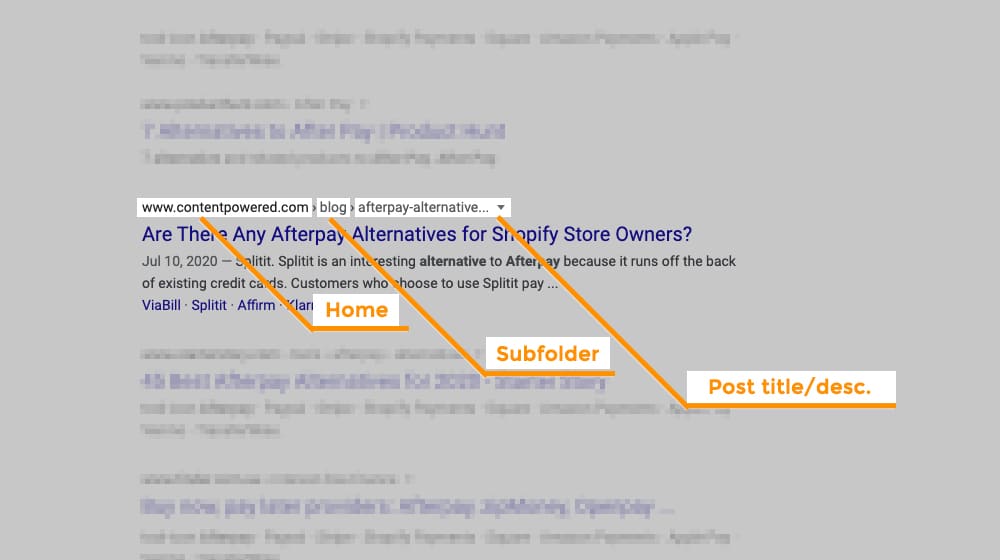
Use a descriptive URL (usually a slightly truncated version of the title) for the best effect.
You're Not Reaching Long-Tail Searches
The key to a high click-through rate in organic search is being one of the three most relevant, highest quality options in the whole of the search results.
Does that sound like a tall order? It sure is! It's difficult, which is why SEO is an entire career path. I can tell you one thing for sure, though; it's a hell of a lot easier if you're picking long-tail keywords instead of top-level keywords.
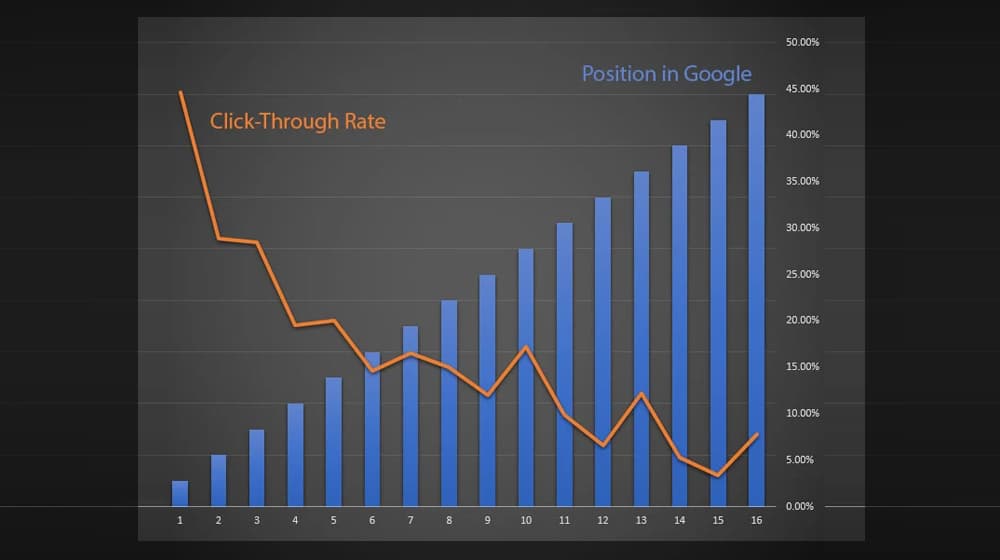
How much competition do you think you have if you try to rank for "SEO" as a keyword? What about "best SEO company in Denver"? A long-tail keyword reduces competition, and thus increases your chances of ranking in the top few positions.
I say you need to rank in the top three, by the way, simply because of how clicks are distributed. Google does a lot to try to give you ten relevant search results for every query on the first page, but human nature is to preferentially visit the first one, then the second one if the first one isn't appealing, and so on.
It's important to keep in mind that search engines have plenty of other things that could be drawing clicks away from your page. Neil Patel lists them off here: things like the search ads, the knowledge graph, the featured snippet, image and video inserts, and everything else that's not a standard search result. You're competing against a lot of different pressures to be one of those top results, and all that just to get a fraction of the clicks. As I said earlier, competition is fierce, and it's become more important than ever to focus on the quality of your web pages over the quantity.
Your Content Appears for Irrelevant Searches
To attract visitors so that they'll click on your page when searching for information, your content needs to be relevant. Unfortunately, sometimes you just show up for queries that you're not actually relevant to. Whether it's a glitch in Google, or them assuming some random phrase in your post was more important than it is, it does mean you'll end up ranking for queries for which you're irrelevant. This isn't your fault and it's not anything that you can control if your content and meta tags are properly optimized.
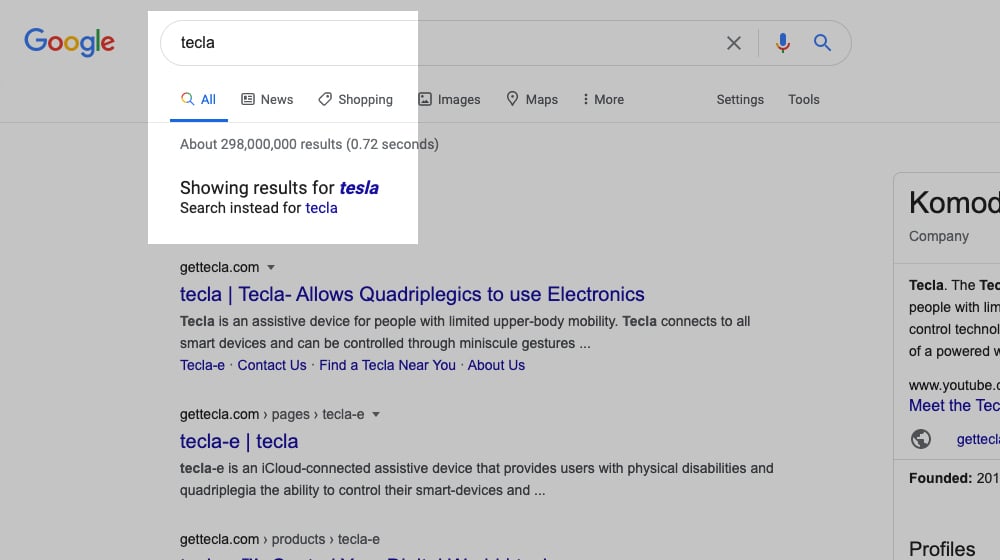
However, if you wanted to try to improve your results and relevancy, you have two options here. Both start with knowledge. Look for queries that you rank for but that send you very few clicks. Check to see if you're actually relevant and just being beaten by other content, or if your post is less relevant. If it's an irrelevant post, look in your post to see what phrase or keyword is causing you to rank for that search.
- Option 1 is to remove that phrase and re-word that section of your content. This streamlines your content, and it gives you that keyword to use for another post, preferably one actually focused on the topic. If it's something relevant to your niche, it's basically a free content idea.
- Option 2 is to identify that topic and bolster it in your article so that your post is relevant to the subject. That will boost your relevance and your CTR for that query. I only recommend this if you have no plans to write another piece of content on the subject, though.
It's important your topic and title of your article match the content itself. If you're asking a question in the topic, read your content and see if you've answered it as the user would expect. If you're writing a guide, read the guide and make sure it's legitimately helpful and covers all of the points it should cover.
If your content is low-quality and drones on and on, it may be best to re-write the article, or at least add some more valuable content to those pages to improve their performance.
Your Competition is Better
Most clicks go to the top-ranking content for a query. You want that to be you, but you know what? A lot of the time, that won't happen. The competition for content is fierce. Other sites have an advantage; they might have name recognition, they might have hundreds or thousands more backlinks, or they might pay for a ton of exposure. They might just have better content than you.
When your content is old and someone has come along and out-done it, well, that's an opportunity. You can edit your old content and bolster it up to a level at or above what the competition is doing. A lot of marketers call this the 10x method: make your content 10x better than the competition, so you blow it out of the water.
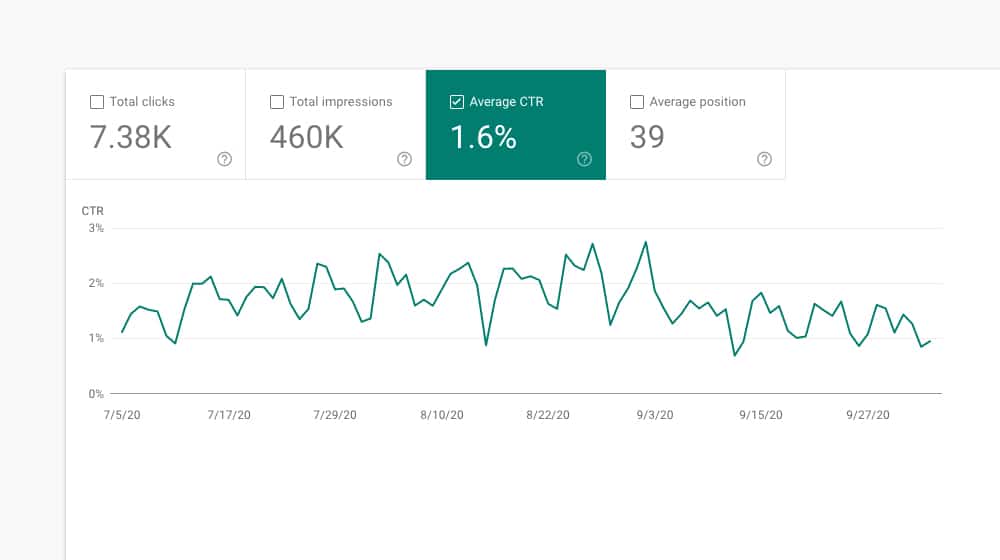
Of course, that kind of growth can't be sustained forever. If everyone is 10xing each other left and right, eventually every blog post becomes The Ultimate Authority On This Topic Forever, and that's not sustainable to create.
If your content is new, and you're not out-doing the competition, you have to ask yourself why not. Is the competition an authority you can't hope to match, like trying to beat Moz in basic SEO guides, or Ahrefs in link analysis? Maybe you should be looking for an alternative topic to cover instead. If you should be able to out-do the existing content but you haven't, maybe you need to have a chat with your writers.
Your Site is Too Slow
Google has been putting more and more emphasis on fast and responsive sites over the last few years, from PageSpeed Insights to the Core Web Vitals. Making your site extremely fast has very good returns. I can vouch for it. I've spent a lot of time and effort working on my site's speed, and I'm proud to say I get a 98/100 for Desktop and a 97/100 on Mobile.
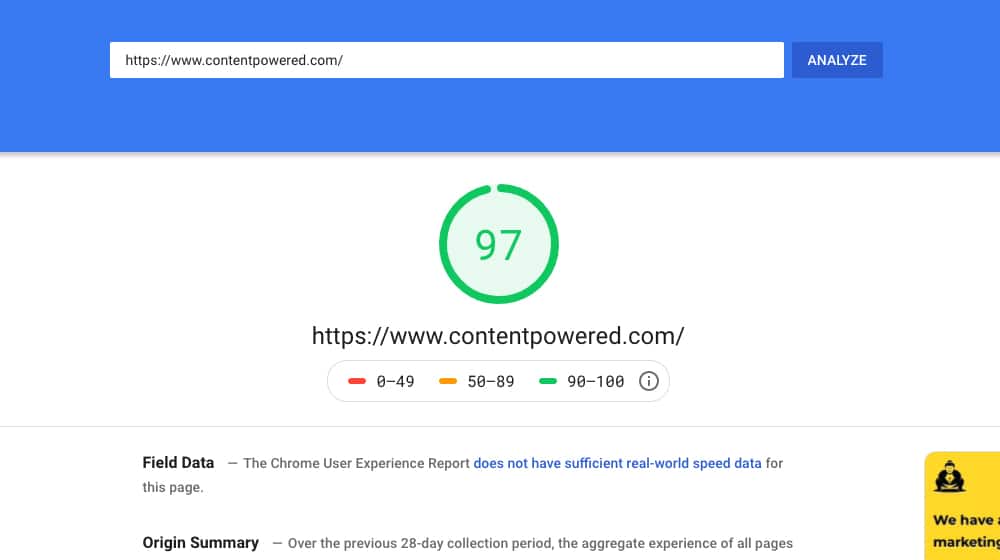
When your site is fast, it performs better on search engines, and a higher rank means you'll attract a larger share of the visitors for those terms.
Invest in speed, everyone! A fast web server is a great first step, and a caching plugin is the best step after that if you're using WordPress. That's 90% of the battle right there.
You're Not Using Schema Markup
Another detail Google has been promoting over the years is rich data markup. Remember that list of things that draw attention away from the organic results up above? Things like video inserts, knowledge graph data, reviews, and map data? All of this is stuff you can add to your site, and flag with Schema markup.
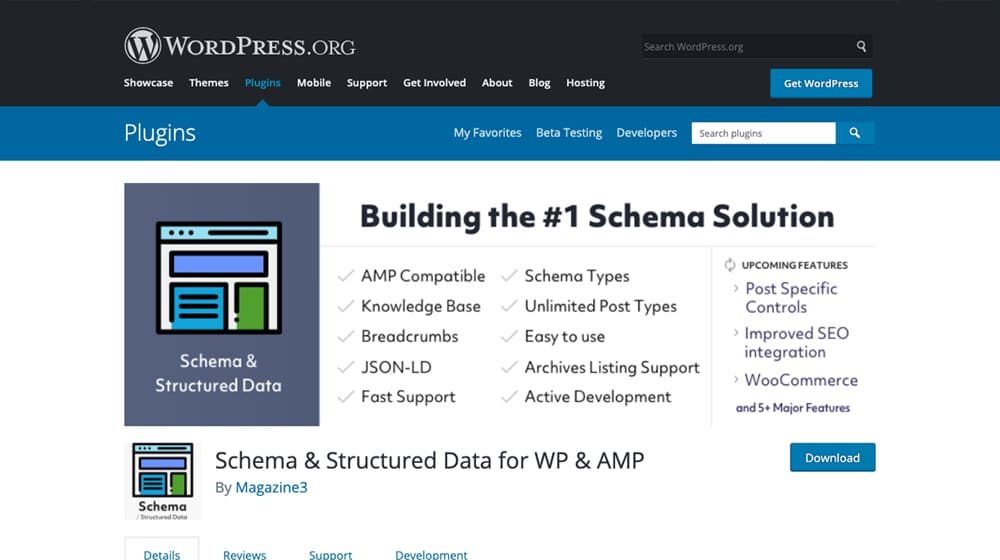
Schema markup helps Google parse and understand elements of data on your site, which they can then use to feed their specialized algorithms. It's how you get all of those extra bits of rich data on the search results. If Schema markup applies to your blog posts, make sure you're taking advantage of it!
You're Not Watching What Works
Some of your content performs better than others. What are those posts doing right? Find them in the search console and analyze them. What queries are they targeting, and what queries are they reaching? How does the title look? How's the description? Now compare all of this data to the posts that aren't working. What went wrong?
Paying attention to what works and what doesn't is a crucial part of optimizing your content moving forward. Once you know what works, you can replicate that success.



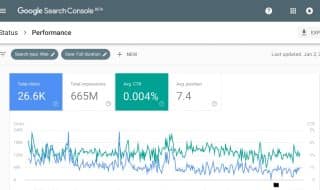






Comments